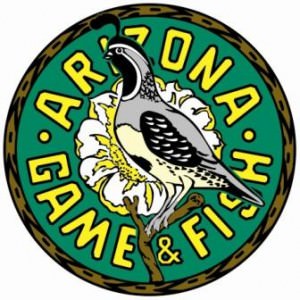No Chronic Wasting Disease Detected During Arizona Deer & Elk Testing

PHOENIX, AZ – -(Ammoland.com)- The Arizona Game and Fish Department reports no detection of chronic wasting disease (CWD) in any of the 1,417 testable samples from hunter-harvested or road-killed deer and elk during Arizona’s 2010-11 hunting season.
Game and Fish has tested nearly 16,000 deer and elk samples since beginning its surveillance program in 1998.
To date, none have tested positive for the disease.
Although CWD has not yet been found in Arizona, it is present in the three neighboring states of Utah, Colorado, and New Mexico.
“We remain steadfast in our sampling efforts in high-risk areas, nearly tripling the number of tested samples compared to last year in Game Management Units 1, 27 and unit 28 (areas bordering Utah and New Mexico),” said Anne Justice-Allen, DVM, wildlife health specialist with the Arizona Game and Fish Department.
Another improvement to the program is easy access to test results. A web-based online system at www.azgfd.gov/cwd allows you to enter your name, phone number, permit and hunt number to obtain results, rather than waiting for a mailed post card with those results.
“The online system is a great improvement to get individual test results out as quickly as possible,” said Justice-Allen. “This monitoring program is made possible by Arizona’s hunters, meat processors, and taxidermists who continue to provide the samples we need and we hope this new tool will make the process easier for them too.”
Each year, hunters who are successful in the Game Management Units bordering Utah and New Mexico, particularly Units 1, 12B, 27, and 28, are encouraged to submit heads for sampling because these units are closest to CWD positive areas. Arizona deer and elk from these areas have the greatest potential to have contact with an infected animal from these neighboring states.
While it is only mandatory to bring animals harvested from Units 12A East and 12A West to the Kaibab check station, hunters may also bring animals harvested from other units to the check station for CWD sampling during the regular hours of operation.
About CWD
CWD is a neurodegenerative wildlife disease that is fatal to cervids, which include deer, elk, and moose. Symptoms include loss of body weight or emaciation, excessive salivation, increased drinking and urination, stumbling, trembling, and behavioral changes such as listlessness, lowering of the head, and walking in circles or repetitive patterns.
No evidence has been found to indicate that CWD will cause disease in humans, according to the Centers for Disease Control and the World Health Organization.
CWD was first identified in captive deer in Colorado in 1967 and has since spread to both captive and wild cervids in 18 states and two Canadian provinces. It is a naturally occurring prion disease belonging to a group of diseases called transmissible spongiform encephalopathies (TSEs). Other TSEs are Bovine Spongiform Encephalopathy (BSE) in domestic cattle and Scrapie in sheep and goats.
The department has had rules in place since 2002, which designate cervids as restricted wildlife and ban the importation of cervids in order to protect against the introduction of CWD to free-ranging or captive wildlife in the state (for details see R12-4-406 and R-4-430). Additionally, Game and Fish has a CWD Prevention, Detection, Response, and Management Plan that provides a logical process to manage issues related to CWD in Arizona.
The Arizona Game and Fish Department will continue to work in close coordination with other state and federal agencies to monitor for CWD.
For more information on CWD, visit these website resources:
* Arizona Game and Fish Department’s CWD program at www.azgfd.gov/cwd
* Chronic Wasting Disease Alliance at www.cwd-info.org
* Centers for Disease Control and Prevention at www.cdc.gov/ncidod/dvrd/cwd
About:
The Arizona Game and Fish Department prohibits discrimination on the basis of race, color, sex, national origin, age, or disability in its programs and activities. If anyone believes that they have been discriminated against in any of the AGFD’s programs or activities, including employment practices, they may file a complaint with the Deputy Director, 5000 W. Carefree Highway, Phoenix, AZ 85086-5000, (602) 942-3000, or with the Fish and Wildlife Service, 4040 N. Fairfax Dr. Ste. 130, Arlington, VA 22203. Persons with a disability may request a reasonable accommodation or this document in an alternative format by contacting the Deputy Director as listed above.
